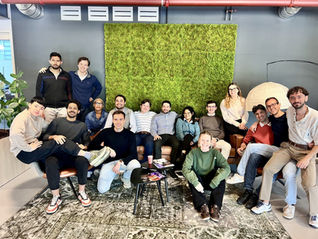
The DIGITAL FINANCE Pathway to Industry and Academia
Charting the Future of Finance
Welcome to the MSCA Industrial Doctoral Network on Digital Finance!
This EU-funded Industrial Doctoral Network, running from 1 January 2024 to 31 December 2027, supports 17 fully funded PhD positions focused on the intersection of finance, data science, and artificial intelligence. Funded under the Marie Skłodowska-Curie Actions (MSCA), the network brings together academic institutions, financial companies, technology providers, and policy organizations to jointly train the next generation of researchers in digital finance.
The network builds on a strong foundation of collaboration. Many of the current partners have successfully worked together in previous EU-funded research projects, including Horizon 2020 initiatives and the COST Action CA19130 Fintech and Artificial Intelligence in Finance. These earlier collaborations established a robust interdisciplinary and cross-sectoral framework, which is now expanded with the involvement of numerous additional companies and institutions from across Europe.
Key thematic areas of the doctoral research projects include:
-
The European Financial Data Space
-
AI-driven analysis of financial markets
-
Explainable and fair AI in finance
-
Blockchain infrastructure and innovation
-
Sustainability and green finance
Each doctoral candidate participates in a structured training programme comprising:
-
Core scientific courses and advanced technical modules
-
Transferable skills development
-
Extended secondments in industry and non-academic settings (typically 18 months), along with additional placements in regulatory or policy institutions (4 months)
-
Technical workshops, research weeks, and annual project meetings
The network is coordinated by Prof. Dr. Joerg R. Osterrieder (University of Twente and Bern Business School) and brings together 13 core beneficiaries and multiple associated partners from academia, industry, and the public sector.
This website offers detailed information about our research objectives, training structure, consortium members. We invite doctoral candidates, researchers, and industry collaborators to explore the programme and engage with our activities.
Warm regards,
Prof. Dr. Joerg R. Osterrieder
Coordinator, MSCA Industrial Doctoral Network on Digital Finance
University of Twente · Bern Business School
We are an Industrial Doctoral Network established within the Marie Sklodowska-Curie Actions (MSCA) which aims at training highly skilled doctoral candidates in Digital Finance. We bring together a consortium of leading European universities, major international corporations with significant R&D presence, innovative SMEs, renowned research centers, and governmental agencies. Our goal is to foster collaboration and innovation among its diverse members, aiming to advance knowledge, technology and solutions.

Upcoming Events

 Machine Learning in IndustryMon 16 MarMilano
Machine Learning in IndustryMon 16 MarMilano
 Training Week on Blockchains in Digital FinanceMon 30 MarBucharest University of Economic Studies
Training Week on Blockchains in Digital FinanceMon 30 MarBucharest University of Economic Studies
 Deep Learning in FinanceMon 11 MayCoimbra
Deep Learning in FinanceMon 11 MayCoimbra
 PhD Training School on CybersecurityMon 08 JunEnschede
PhD Training School on CybersecurityMon 08 JunEnschede
 1st ARC Training WeekMon 07 DecAthens
1st ARC Training WeekMon 07 DecAthens







